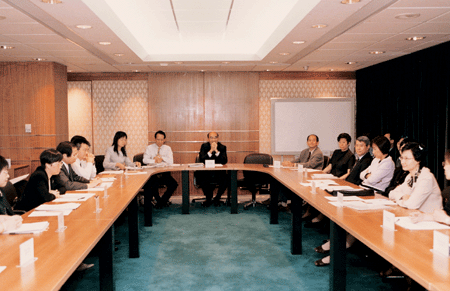|
|
|
|
Introduction For vote-funded departments, virement between components requires approval
of the Finance Committee or the Finance Bureau. OLV places all recurrent
expenditure provided for the operation of a department, other than specified
exceptions, under one single subhead (i.e. Subhead 000 Operational expenses),
which operates on a cash-limited basis. Within his subhead, the Controlling
Officer is given autonomy and flexibility in deploying the funds between
various components and items of expenditure to suit his department's
needs and changing circumstances. Benefits The Commissioner of Police has delegated authority to the budget officers
to utilise the funds under Subhead 000 allotted to their control. The
greater funding autonomy for virement of funds speeds up the decision-making
process in resource management, enabling budget officers to redeploy
funds to meet urgent operational requirements, such as employing non-civil
service contract staff for some computer-related projects, and contracting
out cleansing services, translation services and towing services instead
of recruiting to fill vacant posts. Another benefit is that the authorisation process is much shortened
and virement of funds between components is done collectively in one
go rather than in a piece-meal manner. In general, many departments find that together with the EPP initiatives,
the arrangement has encouraged more innovative thinking among supervisors
and managers in better utilisation of resources. Challenge Internal arrangement For example, Water Supplies Department has just conducted a LAFIS review
to enable budget holders to have access to LAFIS, which captures the
latest position on the availability of funds. Hong Kong Police Force has strict guidelines which do not allow virement
of funds for spending on entertainment, training and overseas duty visits
which come under the ambit of Subhead 149. Reaction of Staff Suggestions Some suggest that OLV with a multi-year budget and automatic carry-forward
of underspending to the next year may provide more certainty and enable
departmental management to more effectively plan on a longer-term basis.
In their experience, many projects last more than one financial year. We will look into these suggestions. In light of the encouraging results, we consider it timely to roll out the one-line vote to more departments. Finance Bureau |
|


